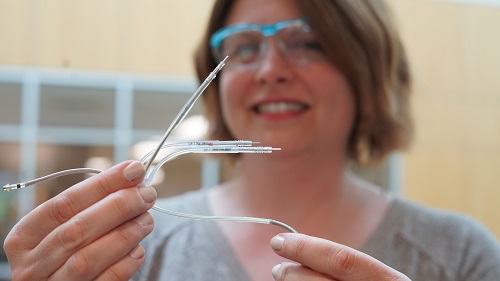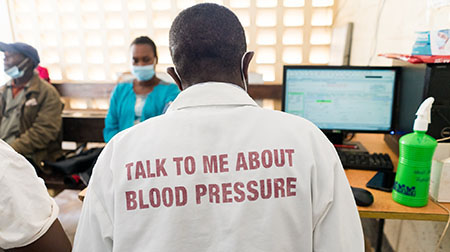Health tech trends to watch: AI, ‘digital twins,’ equity, and more
Five areas to follow as life-transforming technologies and healthcare innovation evolve in 2023
From advances in artificial intelligence to the “printing” of human organs, there were plenty of health care technology innovations to celebrate in 2022.
As life-transforming technologies and healthcare innovation evolve in 2023, here are five trends to watch:
More innovation in AI: Artificial intelligence has already made a profound impact on healthcare, but plan on even more transformation in 2023 that will benefits physicians and patients alike. AI can free up clinicians so they can spend more time where they are needed most — with patients. And for patients, healthcare technology can deliver earlier diagnosis and treatment.
Touchless patient monitoring: Imagine a world where a healthcare team can monitor patients as if they were in the hospital, but those patients wouldn’t leave the comfort of their own home. It’s part of a new era of healthcare technology that will become even more of a reality in 2023. Touchless patient monitoring empowers providers to collect pertinent patient information through remote monitoring devices and frees them from cables, tubes, and face masks.
Health equity: Over the past few years, the healthcare industry has shown a renewed interest in furthering health equity, and that work is not expected to slow down in 2023. The need for innovative solutions to accelerate access to healthcare technology is increasingly clear. One way Medtronic is addressing this is through Medtronic LABS, an independent Medtronic-funded nonprofit organization that accelerates healthcare access for marginalized communities around the world through technology. In 2023, we expect to see more healthcare leaders and organizations coming together to remove structural and societal barriers to quality care.
‘Digital twins’: Could computers replace patients in studies of healthcare technologies? There’s no certain answer yet, but researchers are making progress toward that goal. Artificial intelligence can now help scientists model real organs with stunning precision, creating so-called “digital twins” for testing purposes. Several U.S. clinical trials are now testing the validity of the approach.
Robotics rising: There’s been tremendous innovation in robotic-assisted surgery (RAS) in recent years, and that trend will continue into 2023. Cutting-edge features, like 3D visualization and AI-powered surgical video analytics, are bringing more capabilities to RAS technology. And industry leaders are hopeful that RAS will give more patients around the world access to minimally invasive surgery.
L001-01092023
Related content



